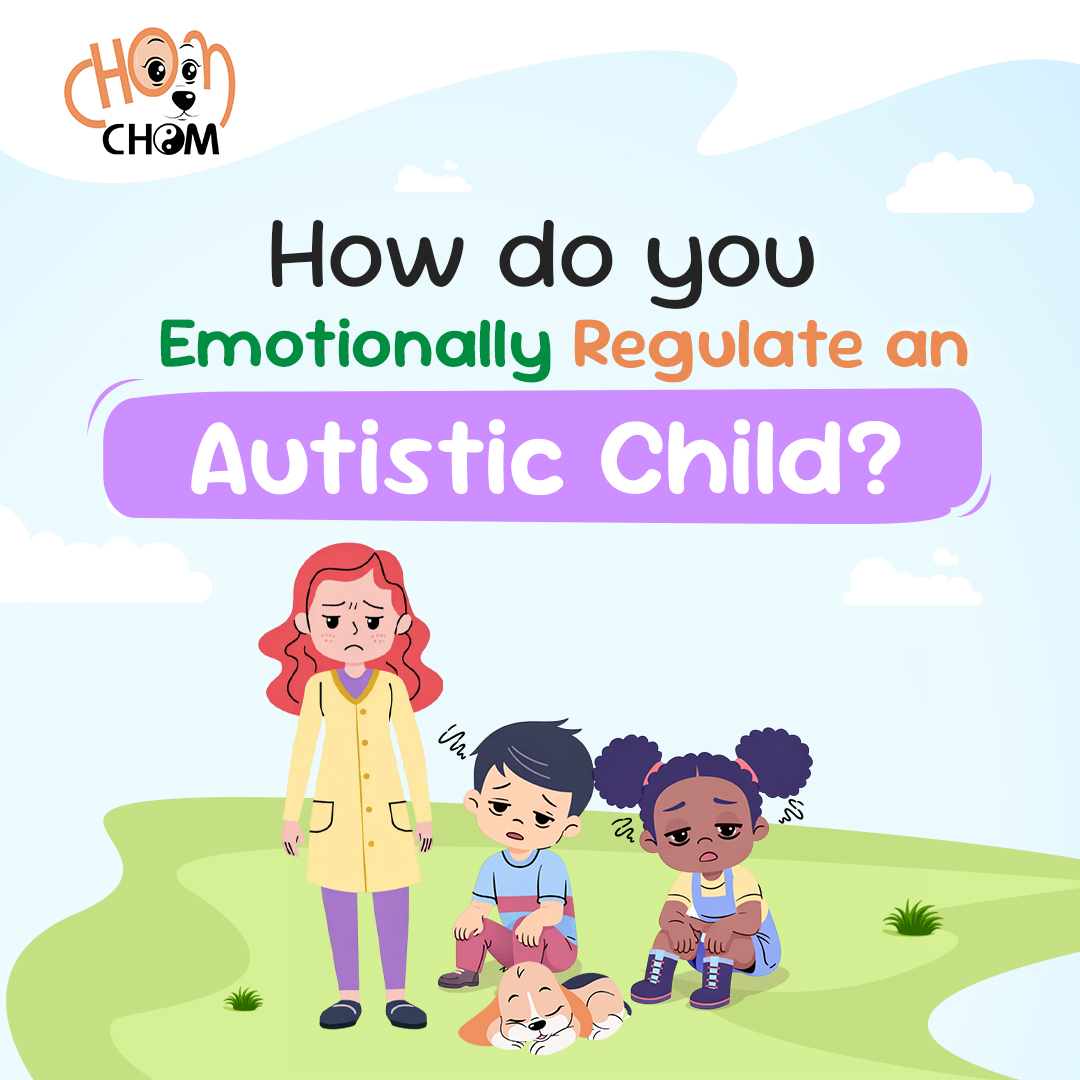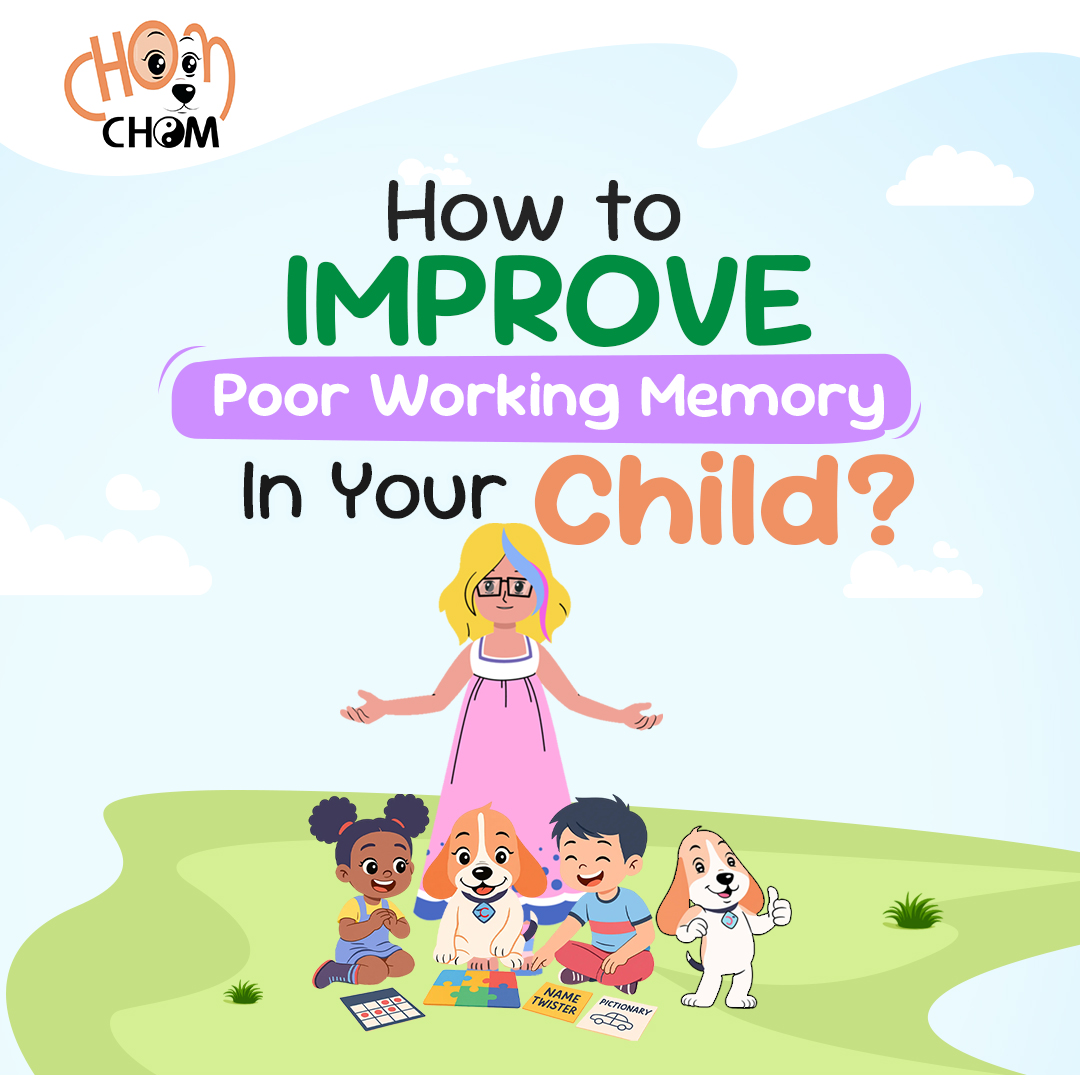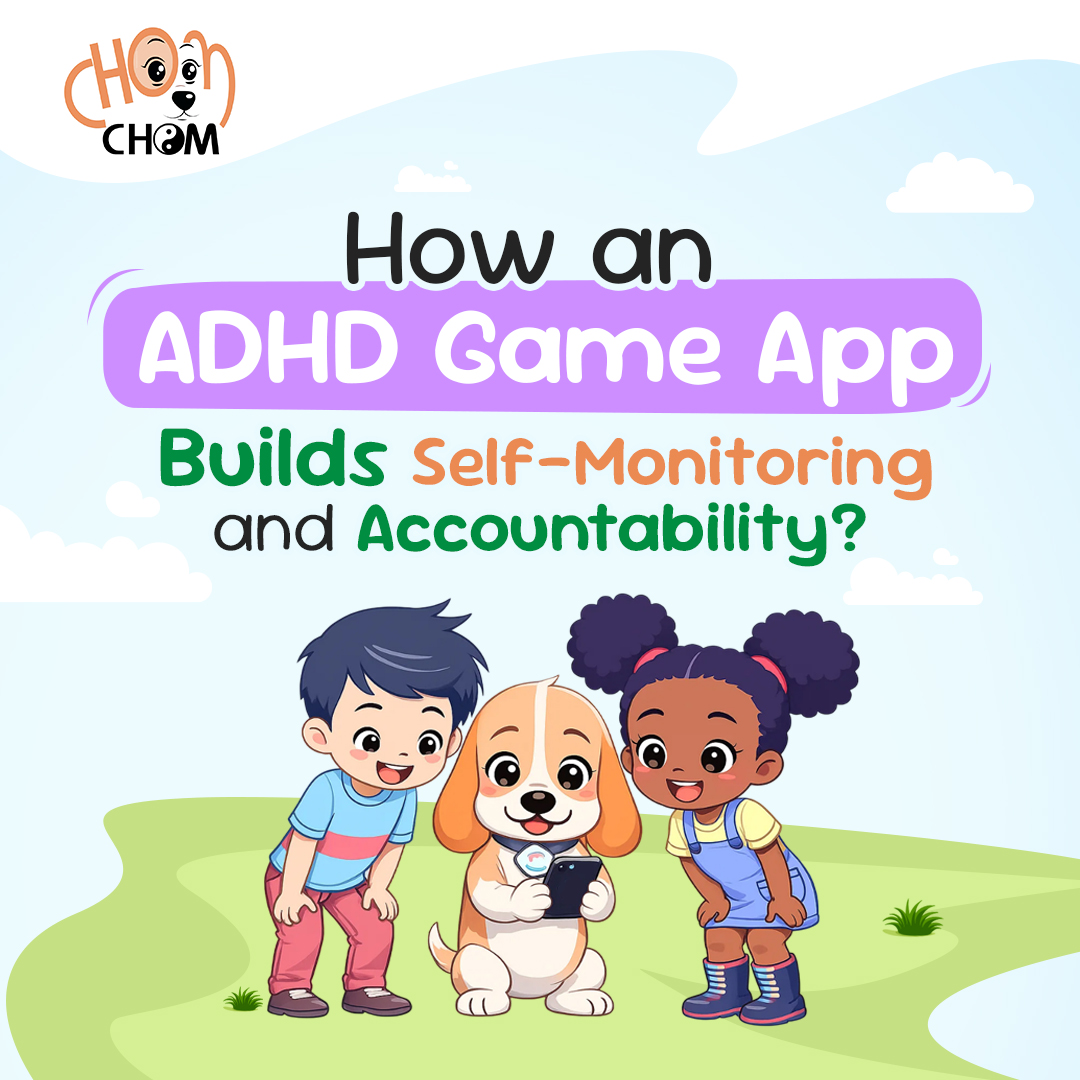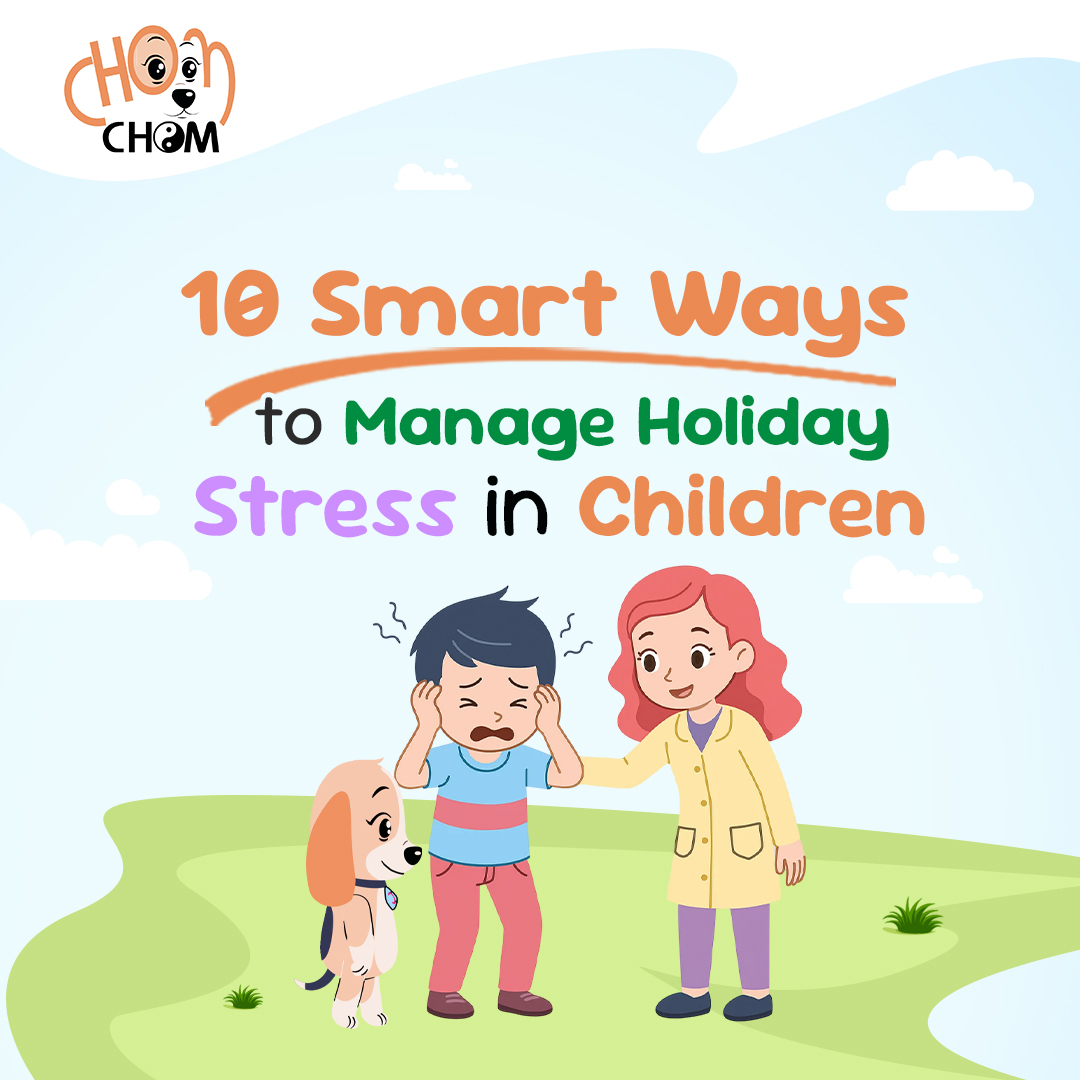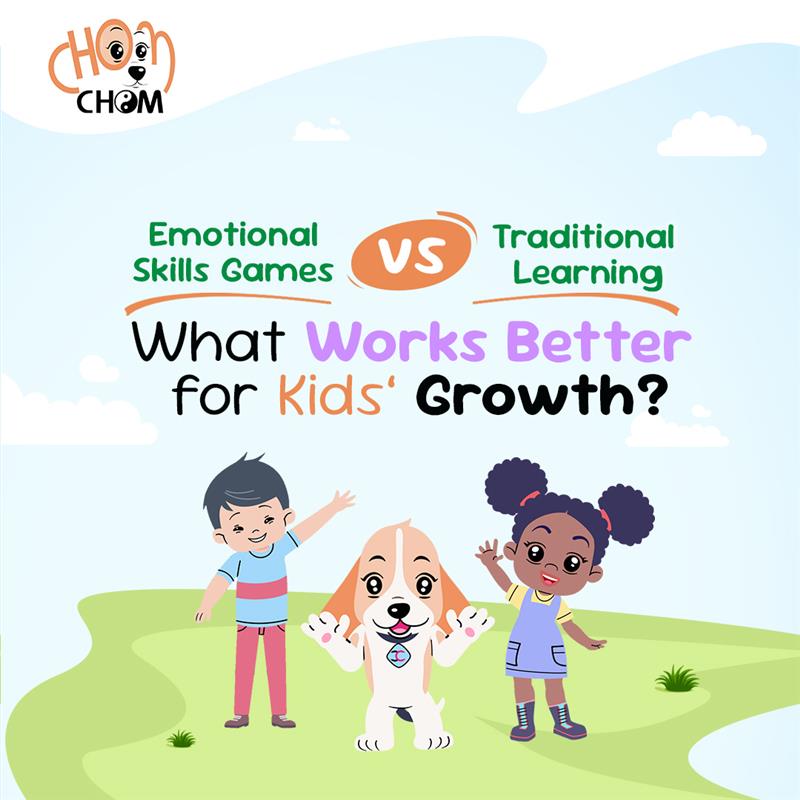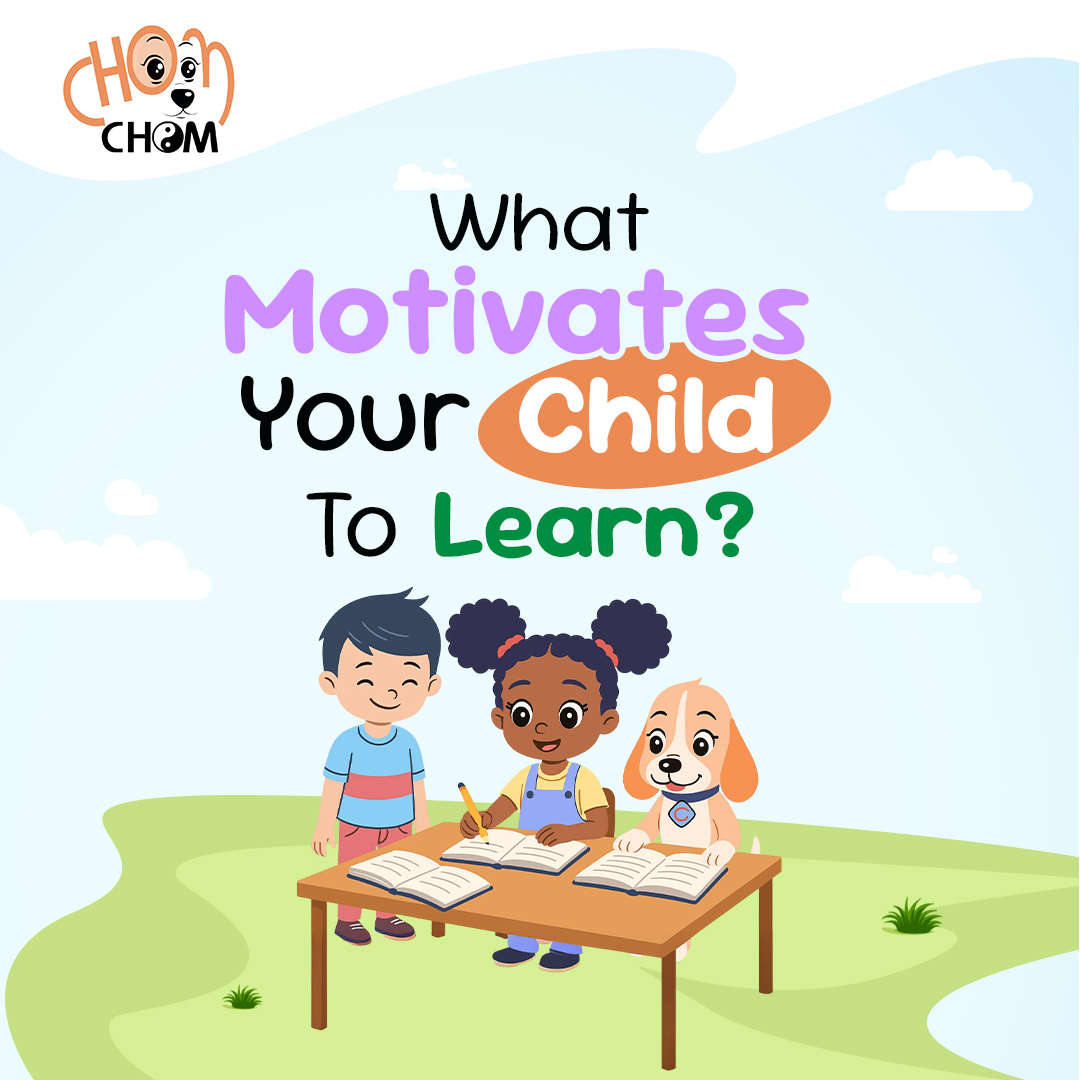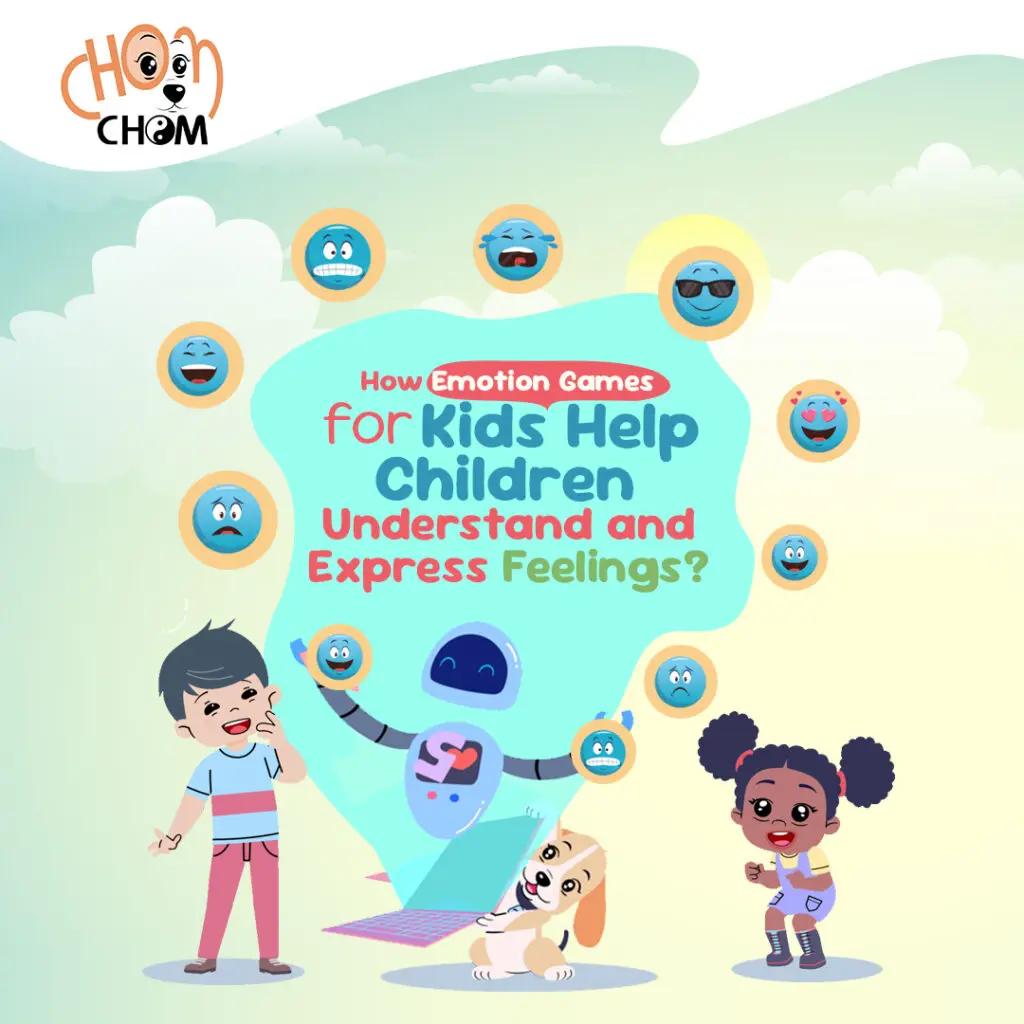
Big feelings can often feel overwhelming for little hearts. As parents and caregivers, we see our children struggle to manage or name their emotions. The worst part is that it can leave us feeling helpless as well.
Emotion games for kids can be immensely helpful in this regard. Through role-play, storytelling, and expressive play, your toddler can understand the inner world in their way. The games, recommended by psychology educators, are not only fun but also essential for emotional growth.
When children learn to express feelings, they also develop resilience, empathy, and confidence.
Are you also seeking answers to these complex aspects? This blog will explore how games for emotional regulation can play a meaningful role in your child’s emotional development. We will walk you through how gameplay benefits emotional learning and helps children manage their feelings in healthy ways.
Stay tuned.
Kids Also Have a Vast Range Of Emotions
We often forget that: Kids feel everything just as deeply as adults do. Sometimes these feelings are more intense.
However, unlike adults, they often lack the self-awareness, vocabulary, or experience to make sense of what’s happening inside. One moment, they laugh uncontrollably, and the next, frustration envelopes them. Sometimes, they even burst into tears.
Such emotional swings often feel confusing for both the parent and the child. The truth is That Children experience a wide range of emotions. They need supportive and safe ways to express and explore them. Many adults unintentionally try to suppress or minimize their children’s emotions. They experience a range of emotions, including jealousy, fear, insecurity, excitement, shame, and more, all at the same time.
We might say, “You are fine,” or “It’s not a big deal,” thinking we’re being helpful. Nevertheless, this can make the kids feel unseen. It’s essential to acknowledge that kids have different emotional experiences, just like any other person. In this way, you will be able to raise emotionally healthy and intelligent children. Even if they seem small from an adult’s perspective, these feelings are utterly real.
Enter video games for kids that focus on their holistic emotional development. The games invite children to name, notice, and process their feelings. By watching the game characters facing emotional challenges, they accept that it’s okay to feel scared, upset, or confused. Gradually, they learn that their emotions also matter.
Such recognition is powerful as it builds emotional safety, trust, and a stronger parent-child bond over time.
Games also enable children to develop empathy and put themselves in someone else’s shoes. They explore disappointment, friendship, or success, and begin to see emotions from other perspectives. It fosters empathy and encourages thoughtful responses rather than impulsive reactions.
When we recognize that children also have a rich emotional world, we empower them to connect more effectively with others. Emotion-based video games are simply another helpful tool designed to keep children in mind.
How Video Games Can Help Children Manage Their Emotions?
Children cannot manage what they do not understand. So many kids experience different kinds of emotions, such as frustration, embarrassment, or anxiety. Additionally, they lack words to describe them.
Emotion game for kids often introduces characters who model different feelings. They show what joy, sadness, fear, or anger might look like in the body. Through visual cues or playful storytelling, your kid can associate real-life emotions with words and physical sensations. It develops and strengthens self-awareness, the first step toward emotional intelligence.
They Teach Children That It’s Okay To Have Emotions
Some kids feel uneasy or self-conscious when they get scared or angry. They might even think that certain emotions are “wrong” and that they should not feel them at all. Emotional video games, in this regard, gently reinforce the truth.
All feelings are natural – the young souls gradually realize this.
Sometimes they have to guide the players through safe emotional challenges. It may include helping someone express excitement or calming down an upset character. It’s how children learn that every emotion has value and purpose.
They Help In Practicing Coping Mechanisms
One of the most impactful features of emotion games is that they provide young children with an opportunity to practice emotional regulation. And that too in a low-pressure environment. For example, a particular game might show a character using calming self-talk or taking deep breaths. Even some of them are taking breaks when they feel overwhelmed,
Your child begins to imitate these behaviors in real life while playing the game. These are some of the coping strategies that help kids feel more in control of their reactions and emotions. After all, they also experience stressful moments.
They Improve The Expression Of Emotions Through Play
Your little one learns best through play. Video games allow kids to create imaginative stories, role-play, or interact with characters who feel just like they do. This is the time when they begin to understand how to express their emotions more clearly, regardless of their magnitude.
For instance, emojis in the games can help players match a character’s feelings or select dialogues that show empathy. Such small moments of choice encourage your toddler to explore how emotions impact communication and relationships. It’s something that words can’t teach alone.
Over Time, They Build Resilience
In a game when kids experience emotional ups and downs, they learn something very important. And that is, feelings don’t last forever. They see that frustration can ease, sadness and despair can drift away, and joy can also return after a tough moment.
Such emotional resilience enables them to manage setbacks after bouncing back from obstacles with a healthier mind. Through emotional games, your child will experience growth without any fear of failure or punishment.
The Science Behind Using Video Games To Teach Emotions
It can be overwhelming to raise children with high emotional awareness in a world filled with screen time and distractions. As a responsible parent or caregiver, you may wonder whether games designed to promote emotional regulation can truly help children.
The surprising yet research-backed answer is YES. Thoughtfully designed, emotion-based video games for kids with adhd can do much more than just entertain. They can become powerful tools for emotional growth:
- Kids Learn Best Through Play
Play is not only fun and a distraction; it is also beneficial. It is how toddlers test ideas, explore the world, and understand their inner selves. When these games introduce them to different emotions, they begin to develop a personal emotional vocabulary.
Games often depict characters facing genuine emotional challenges, such as anger, nervousness, loneliness, or excitement. While solving these characters’ problems, they begin to apply those lessons to their own lives. The hands-on learning brings more value than abstract learning ever could.
- Games Activate Cognitive and Emotional Centres In The Brain
When your child plays a video game that involves decision-making, perspective-taking, or storytelling, their brain becomes more active. Neuroimaging studies show that interactive games stimulate the prefrontal cortex and the limbic system. Both of these manage emotional regulation, process emotional experience, and control impulses through activities.
During early childhood, these areas develop more rapidly. As a result, they are building the brain pathways required for long-term emotional intelligence by playing emotion games.
- Kids Don’t Feel Ashamed To Make Mistakes
Real-life emotional situations can be very scary or intense for little hearts. They might prohibit themselves from crying to avoid getting into trouble. However, within a game, children have the freedom to try, fail, and try again without shame.
Through meltdown, they can guide a character, choose how to respond when a friend becomes upset, or pick a calming tool. It’s a trial-and-error method helping kids practice deep emotional control and strategies.
- Games Boost Empathy
Several emotion-focused video games for kids feature creative storylines. These games ask players to understand how others feel. Through such a play, children step outside their own experience and see the world from someone else’s perspective. In doing so, they begin to understand emotions such as guilt, pride, compassion, and gratitude.
Needless to mention that these feelings are complex and sometimes difficult to explain in words. Such moments foster empathy, which is crucial in life for building healthier relationships.
- Repetition Strengthens Emotional Muscle Memory
Like learning to read a book or ride a bike, emotional intelligence develops through habit. Games provide a regular practice in recognizing feelings, naming emotions, and choosing responses. With time, little ones learn to build muscle memory. As a result, when they face similar situations in life, they know how to respond.
They have already practiced calming down, showing kindness, and asking for help, and these responses become natural.
Understanding The Potential Benefits
When a child struggles to express what they feel, it’s because they don’t yet have the right tools. Does your toddler shut down during a meltdown or lash out in frustration? You are not alone.
That’s why games for emotional regulation and learning can make such a difference. Here we have jotted down some of the most effective benefits of video games for kids’ emotions:
Emotional Regulation Strategies
Believe us or not, children, in their small bodies, often feel big emotions. And sometimes, they don’t find a way to process those feelings. It can lead to outbursts, constant restlessness, or shutdowns. Emotion-focused games offer kids gentle, repeatable ways to practice calming down, such as deep breathing and taking breaks.
These strategies work beyond the screen. Kids start using them in real life, creating a stronger sense of control and resilience when they face frustration, disappointment, or anxiety.
Social Skills Development
As a child, social interactions are one of the most challenging areas to tap into. Especially for kids who feel neurodivergent, shy, or anxious, emotion-based games offer a chance for them to experience teamwork. Kids learn how to listen, handle disagreements, take turns, and show compassion – all through gameplay.
Since games remove the pressure of real-time social expectations, children can experiment, learn, and build confidence.
Emotional Intelligence
Strong emotional intelligence is at the heart of every emotionally healthy child. They possess the ability to understand, recognize, and manage both their own emotions and those of others. Games that teach emotions provide a structured and playful way for kids to build this essential skill.
Through repeated practice, they learn to recognize emotional cues in others and accurately label their feelings. Furthermore, they also understand how their thoughts and actions can influence their emotions.
Stronger Parent-Child Bonding
If your child engages with games that explore emotions, they naturally begin to share more about their inner world. You will often experience that after playing, kids become more open about what they are feeling and why.
It provides a gentle, shared language for discussing emotions without confrontation or confusion. These conversations build trust and deepen your connection with your child through compassion and understanding.
Improved Self-Esteem
Games that focus more on emotional growth do not just teach kids what they should feel; they also help them understand how to express those emotions. They show them that it’s okay to feel that way. By making kind choices in the games, they begin to believe in their ability to handle tough moments.
In this way, they start to see themselves as kind, capable, and thoughtful. Primary qualities like these strengthen their self-esteem.
4 Top Types of Video Games for Emotional Regulation
Several video game genres can help little ones build emotional control. Additionally, skills such as problem-solving, social interaction and creativity are also developed. Games for emotional regulation can control these aspects of children.
Let’s take a quick look at the 4 best types of emotion games for kids:
1. Sandbox Games
These games enable children to create, explore, and develop problem-solving skills while also fostering creativity. They get the freedom to express them and experience various situations. This, in turn, facilitates the development of a sense of accomplishment.
2. Simulation Games
Games related to animals provide a relaxed environment where kids can interact with characters. Such games offer customization options along with opportunities to manage their virtual lives. Your munchkin will develop emotional resilience, planning skills, and a sense of responsibility.
3. Cooperative Games
Puzzle games encourage kids to engage in critical thinking, tackle problems, and persist in the face of difficulties. These abilities are directly associated with emotional control. Youngsters learn to handle disappointment and appreciate achievement when they finish a puzzle.
4. Puzzle Games
With puzzle games, kids begin to think analytically and handle problems in a fun, non-pressurized environment. The abilities they develop enable them to deal with real-world scenarios, such as target fulfillment and accepting failures.
Why Choose ChomChomTech?
ChomChomTech stands out as a research-backed, heartfelt solution for families seeking games for emotional regulation. It’s an innovative platform that’s not just another gaming app. Rather, it combines the therapeutic expertise of child psychologists with interactive, playful experiences. The overall objective of ChomChomTech is to support your child’s emotional development in meaningful ways.
ChomChomTech has intentionally designed emotion video games with focus activities for kids around ADHD, anxiety, and behavioral difficulties. Experienced therapists have developed each game based on behavioral science to help children manage their emotions efficiently. The therapist-informed approach makes every activity playful and therapeutic at the same time.
With us, you can keep your toddler engaged while giving them the time to build important emotional skills.
How ChomChomTech Helps With Emotion Games?
ChomChomTech doesn’t stop at games. It also equips parents, counselors, and teachers with a data-driven dashboard that tracks various aspects, including:
- Check-ins.
- Progress in self-awareness.
- Habit-building around mindfulness and routine.
Through these insights, you can support your kid’s emotional journey with informed guidance and empathy. One of its flagship experiences is MoodQuest. It beautifully transforms emotional learning into a vibrant adventure. Children aged 4-10 can guide cartoon caterpillars to their cocoons by linking emotions to music. They can also achieve this by matching facial expressions to moods and selecting the appropriate words.
It makes the emotion identification process tactile, fun, and visual, which is more effective than static lists or lectures. Additionally, the platform promotes a positive screen time experience by offering offline, ad-free gameplay to foster balanced lifestyles.
MoodQuest: A Fun Way To Learn Emotions!
At ChomChomTech, we believe that learning emotions should feel playful, safe, and empowering. With our MoodQuest, your little one will be able to do much more than play. They will feel, acknowledge, and express their feelings in feasible ways.
It’s a gentle, fun, and scientifically developed tool that our experts have created for emotional growth, fitting seamlessly into everyday life.
Let your child discover the joy of self-awareness through games for emotional regulation. Start your MoodQuest journey with ChomChomTech today!

